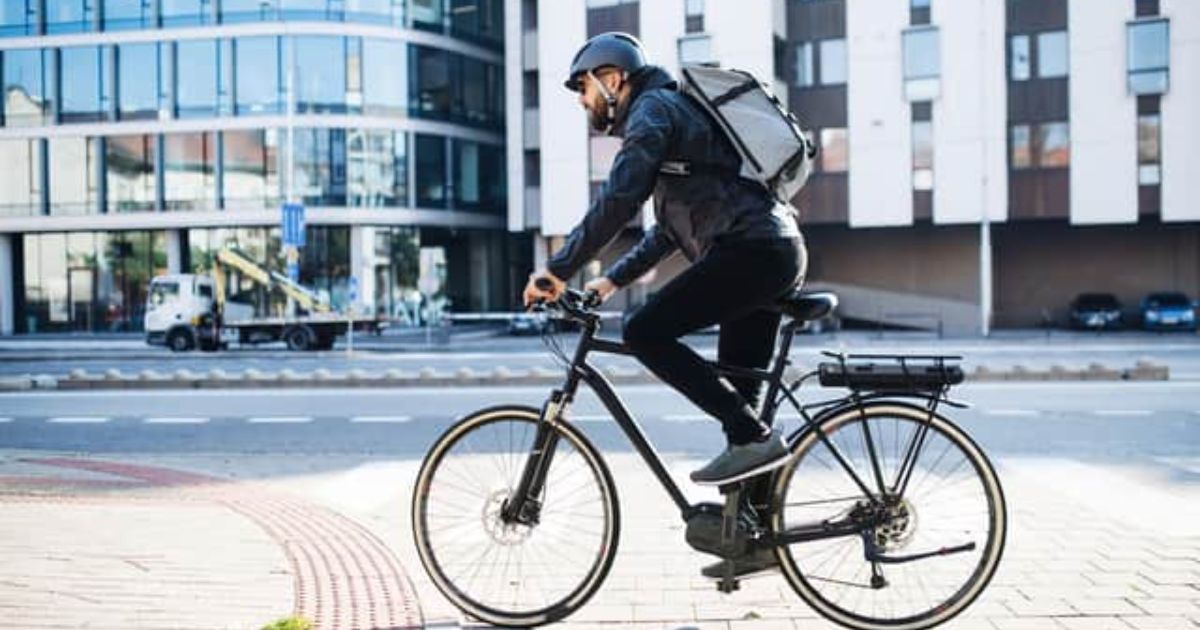A groundbreaking study from the University of Edinburgh has found that cycling to work can be associated with less likelihood of being prescribed antidepressants.
The research came from a 378,253 individual analysis in Scotland and showed 15% fewer cases of depression or anxiety prescriptions among cyclists as compared to others who commuted differently.
Intense Analysis of Data
The data was combined by scientists from the Scottish census done in 2011 and five-year-old NHS prescription records.
The focus was on those respondents who were aged between 16 and 74 years living or working in Glasgow and Edinburgh, which are the largest cities in Scotland.
Gender Disparities
Surprisingly, women saw their mental health prescriptions drop more significantly than men if they decided to cycle to work daily.
However, despite this disparity, it was shown that men are more likely to cycle commute as mode of transport.
Dr. Laurie Berrie’s Viewpoint
Dr Laurie Berrie, a staff member of School of GeoSciences at The University of Edinburgh gave insight into how the study was conducted.
She stressed that the study took advantage of individuals’ responsiveness to cycling when they lived near some cycle paths.
By so doing, researchers were able to mimic randomized controlled trials where cyclists could be compared with other commuters using different modes while keeping all other factors constant.
Perspective Of Professor Chris Dibben
Professor Chris Dibben who is overseeing this research at the University’s School of GeoSciences highlighted wider implications for these findings.
He said that this study not only talked about mental health benefits accruing from cycling but also called for policy changes whereby investing in cycling infrastructure and promoting active commuting would have significant societal advantages.
The Holistic Impact of Cycling
However, besides the positive effect on mental health there are a number of other potentials societal gains that adopting cycling as a means of commuting could bring about.
In addition, Dibben observed that such a shift in transport behavior could simultaneously address issues like carbon emissions, road congestion and air pollution.
Study Novelty
The uniqueness of this study is not only evidenced by the vast number of participants but also by its innovative approach to investigating psychological benefits of cycling.
In order to determine this impact on mental well-being, the researchers used proximity to cycle paths as a variable and made insightful conclusions.
Implications For Public Health Policy
These results have implications for public health policy makers. Due to an increase in global mental health concerns, it becomes important to incorporate cycling-friendly infrastructure into urban planning as a cost-effective and sustainable way.
The study suggests that promoting active commuting does not only enhance mental well-being but also aligns with wider goals related to environmental sustainability.
Active Commuting in mental Health Promotion
With growing mental health awareness, the paper underscores active commuting’s potential role in promoting mental health.
This offers multiple benefits as cycling is affordable and environmentally friendly mode of transportation. This has implications beyond personal welfare as it pertains society and environment.
Looking Beyond the Numbers
While the study has good figures, it is important to add that it also invites us to look deeper into experience of cycling.
Cycling to work pays dividends for commuters through the opportunity for physical exercise, autonomy and freedom from traffic stress as well as a chance to think over during the trip.
Global Perspectives on Active Commuting
The paper’s results bring it home globally amidst so much urbanization and depression issues being addressed by societies day in day out.
The findings can give cities throughout the world ideas on investing in biking facilities as part and parcel of making healthier and sustainable urban surroundings.
In conclusion, this pioneering study conducted by researchers from the University of Edinburgh reveals how significant are mental health improvements linked with riding to work.
This investigation, which drew on extensive data analysis covering more than 370,000 people, underscores active commuting’s potential as a potent instrument for boosting the mental well-being of individuals.
In terms of dealing with mental health challenges, this research indicates that re-imagining transportation strategies may be an integral approach towards addressing these problems fully.




























